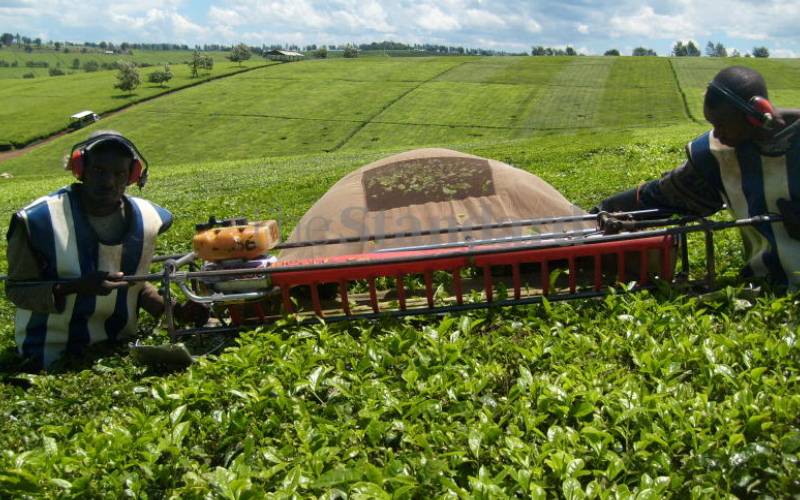×
The Standard e-Paper
Stay Informed, Even Offline

Tea picking machine at a farm in Nandi Hills, Nandi County. [Kevin Tunoi, Standard]
The ongoing sacking of tea pickers in the multinational tea farms, and the lay-offs that we have witnessed in the sugar and coffee industries have lifted the lid on the government’s jobs creation policy.